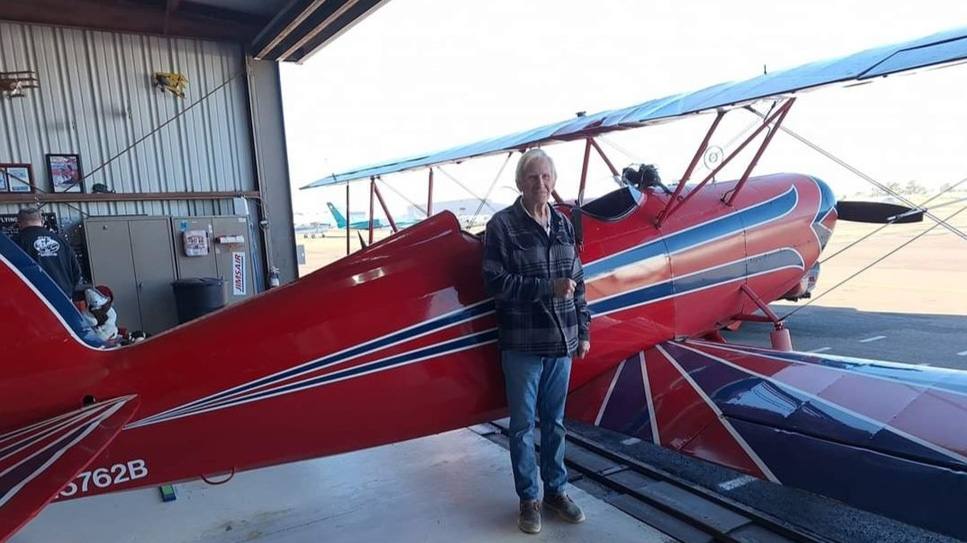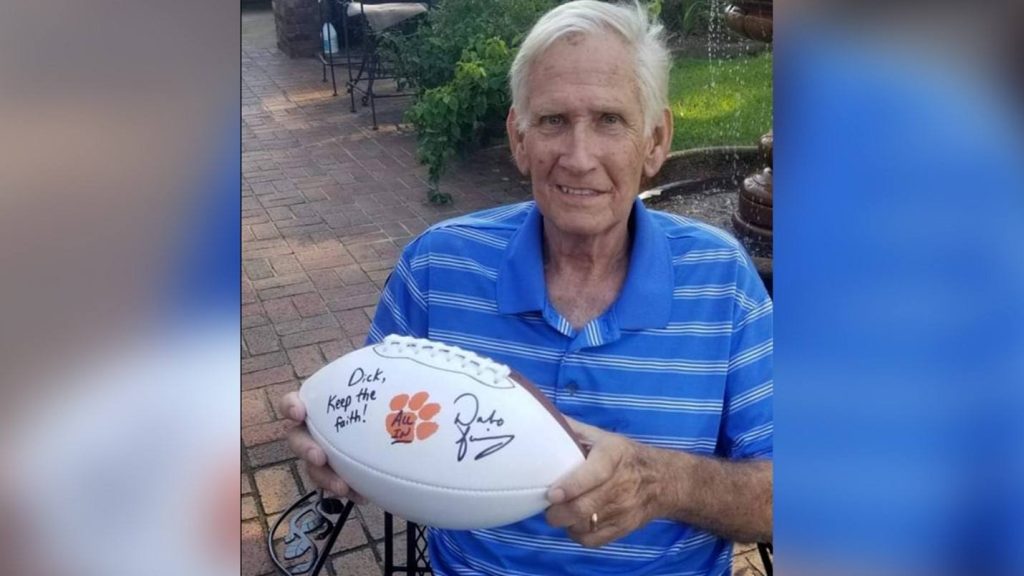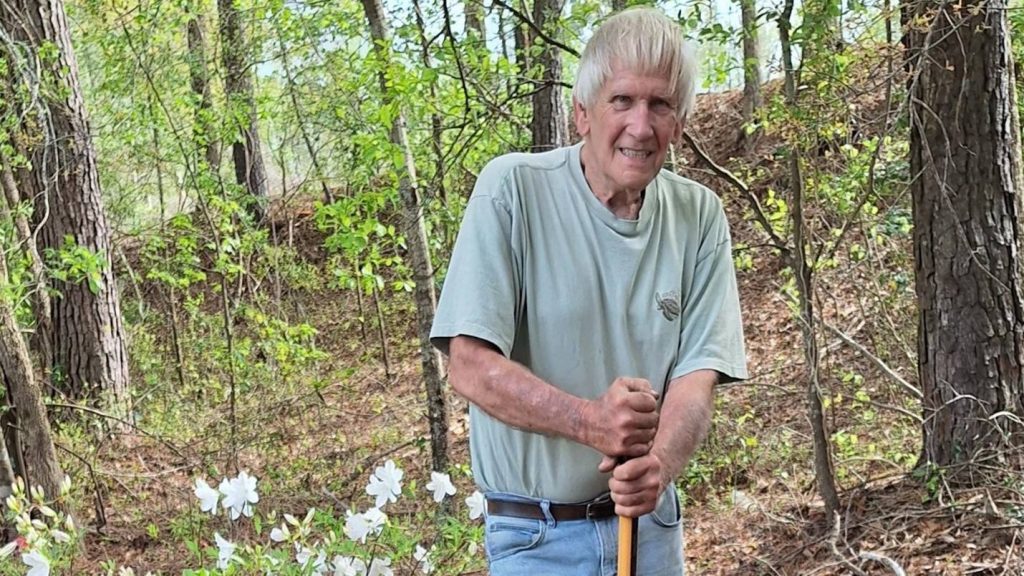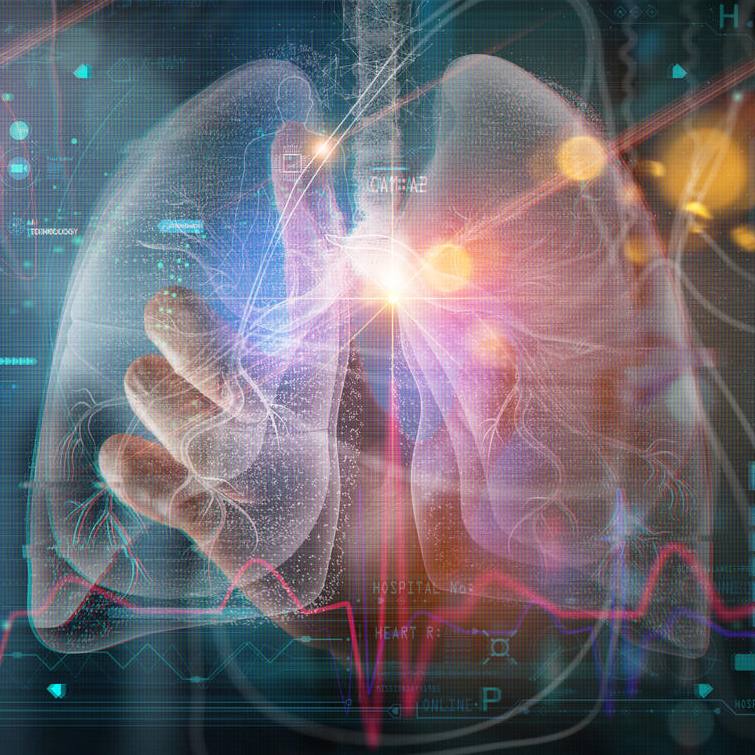
When Walter "Dick" Whetstone leaves his home in central South Carolina, he's usually wearing a paw print or, at the least, his school colors of orange and purple. The proud Clemson University alumnus didn't realize that what he wore to an appointment would earn him a nickname and a chance to help others.
In late 2020, Dick began losing weight. At first, it was on purpose, as he was making diet and exercise adjustments to keep up with his grandchildren. But when the changes stopped, and his weight continued to drop, he went to his family doctor for answers.
Tests confirmed pancreatic cancer, and by July 2021, Dick was receiving chemotherapy in South Carolina. Doctors estimated he had four to six months to live.
"I remember asking my wife for a piece of paper so I could write down who would be pallbearers at my funeral," Dick says.
Complications from an open-heart surgery several years earlier led him to experience cardiac arrest four times during treatment. He explained that surgery to remove a tumor was called off in the operating room and that the physician recommended palliative care.
"If I'm going down, I'm going down fighting," Dick says.
That's when he began researching options for pancreatic cancer treatment. He found information about Mayo Clinic and called the operator.
"Within 10 days of me calling the number, I had connected with the care team at Mayo Clinic in Florida and was in Jacksonville for tests and appointments," Dick says. "Within the month, I was preparing for surgery."
He packed a Clemson polo for luck and to show his school spirit. The paw print became a conversation piece when Dick met Dr. John Stauffer for his preoperative appointment.

"Dr. Stauffer walked in the room, saw my shirt and asked, 'Are you one of those Tigers?'" Dick recalls. "We talked about how he was an Ohio State graduate, and before I left, he nicknamed me 'Tiger.'"
Schedulers found an earlier surgery option for Dick so he didn't have to commute home and back to Florida. When he was brought into the operating room, the words he exchanged with Dr. Stauffer are ones he'll remember for the rest of his life.
"He came up to me and said, 'Tiger, we're all on the same side today. I'll see you on the other side,'" Dick says.
The procedure was successful. In addition to removing cancerous tissue, his care team, including Dr. Byron May, delivered intraoperative radiation therapy using a mobile linear accelerator. Dr. May explains that radiation was the best approach because several critical arteries and veins supplying the liver, stomach and intestines cannot be removed, but are often affected by pancreatic cancer.
"Dr. Stauffer and I confer on each patient, determining the precise target zone to be safely irradiated, and follow that plan once the surgical team has removed as much of the cancerous tissue as possible," Dr. May says. "This teamwork and collaboration before, during and after surgery assures maximal success for our patient."
Motivated to get back to his family, Dick started walking with his nurses around the halls. For a patient Dick's age, hospital stays after surgery range from 15 to 18 days. Dick exceeded expectations and was cleared by his team after five days.
In the time since his procedure at Mayo Clinic, Dick has worked toward renewing his pilot's license — once a dream he thought was gone due to his health. He spends more time with his family, including his grandchildren; working outside; and he's shared his journey with dozens of people in his community who have been diagnosed with cancer.

"Looking back, I could have given up a hundred times," Dick says. "When I started speaking with patients, I tell them, 'It's going to be rough, and you're going to want to quit — don't. Stay hopeful and determined.' That's been my message to 50 people over the last three years."
He often thinks about his conversation with Dr. Stauffer just before his procedure about being on the same team.
"It's an incredible feeling to know a group of people, who are focused on helping you and making you well again, and who say, 'We're all on the same team,' Dick says. "It's an amazing place to be."







